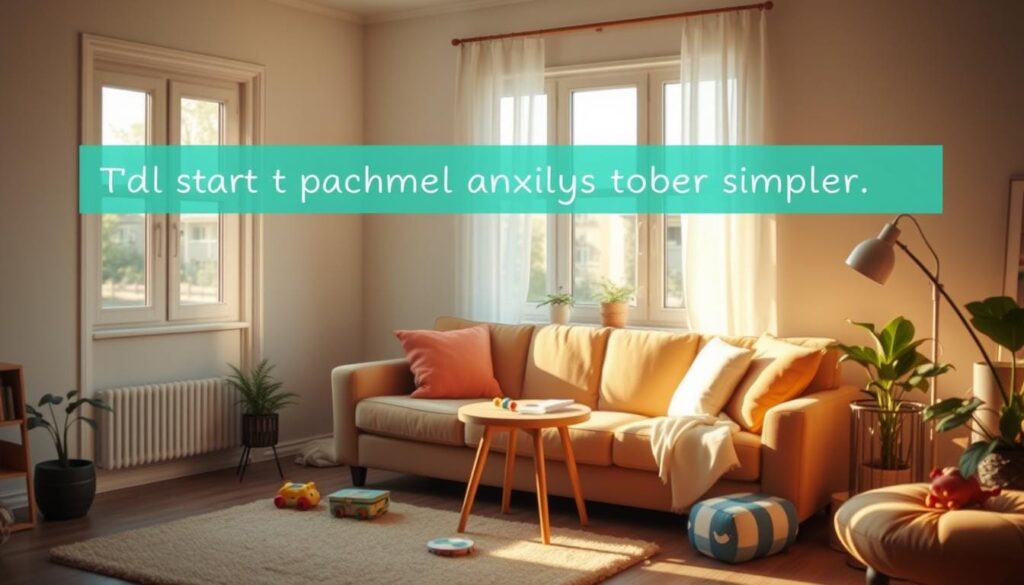As someone who has personally struggled with social anxiety, I know all too well the crippling fear of being judged, the overwhelming self-consciousness, and the intense desire to avoid social situations. It’s a battle that can feel insurmountable, but I’m here to tell you that there is hope. Through my own journey and the guidance of experts, I’ve discovered that effective strategies do exist to conquer social anxiety and reclaim your life.
Key Takeaways
- Social anxiety is a common mental health concern affecting 15 million adults in the U.S.
- Effective treatment options include cognitive behavioral therapy (CBT), medication, and self-help techniques
- CBT helps individuals identify and challenge negative thoughts, develop coping skills, and build social confidence
- Mindfulness, meditation, and lifestyle changes can also provide relief from social anxiety symptoms
- Seeking professional help and building a support network are crucial steps in overcoming social anxiety
Understanding Social Anxiety: Symptoms and Causes
Social anxiety disorder, also known as social phobia, is a mental health condition that goes beyond occasional nerves or shyness. It involves an intense fear of specific social situations, especially those that involve being watched or evaluated by others. The fear of being scrutinized, judged, or embarrassed in public is a key underlying factor for those struggling with social anxiety.
Common Symptoms of Social Anxiety
The physical and emotional signs of social anxiety can be quite debilitating. Common symptoms include blushing, sweating, trembling, shortness of breath, rapid heartbeat, feeling dizzy or nauseous, and a blank mind. Individuals with social anxiety may also experience excessive self-consciousness, intense worry, and a deep fear of being judged by others.
Psychological Triggers
Social anxiety can be triggered by a variety of common situations, such as public speaking, making small talk, going on a date, or attending social gatherings. These everyday interactions can cause extreme distress and significantly impact daily life for those with social anxiety disorder.
The Role of Genetics and Environment
Both genetic and environmental factors can contribute to the development of social anxiety. A family history of the disorder can increase the likelihood of experiencing social anxiety, as there may be a genetic predisposition. Negative experiences, such as rejection, bullying, family conflict, abuse, or trauma, can also exacerbate symptoms of social anxiety.
Identifying the specific triggers and underlying causes of social anxiety is crucial for effective management and treatment. With the right support and strategies, individuals can learn to overcome the challenges of social anxiety and reclaim their confidence in social situations.
The Importance of Seeking Professional Help
When it comes to overcoming social anxiety, seeking professional help can make all the difference. Mental health professionals, such as psychologists, psychiatrists, and therapists, are experts in identifying and treating anxiety disorders like social anxiety. They can provide the guidance, support, and evidence-based treatments needed to manage the symptoms effectively.
Types of Mental Health Professionals
Several types of mental health professionals can assist with social anxiety treatment:
- Psychologists: Trained in psychological assessment and therapy, they use techniques like cognitive-behavioral therapy (CBT) to help patients recognize and change negative thought patterns.
- Psychiatrists: Medical doctors who can prescribe medication for social anxiety, such as selective serotonin reuptake inhibitors (SSRIs) or benzodiazepines, in addition to providing therapy.
- Therapists: Professionals like licensed clinical social workers, marriage and family therapists, and counselors who specialize in talk therapy for anxiety disorders.
Benefits of Therapy for Social Anxiety
Engaging in therapy, particularly CBT, can offer numerous benefits for individuals struggling with social anxiety. Therapy can help you:
- Identify and challenge negative thought patterns that fuel social anxiety
- Develop healthy coping strategies and social skills to navigate anxiety-provoking situations
- Gradually expose yourself to feared social situations in a safe and supportive environment
- Improve self-confidence and reduce avoidance behaviors
- Enhance overall well-being and quality of life
Medication Options for Treatment
In addition to therapy, medication can be a valuable tool in the treatment of social anxiety. Common medication options include:
- Selective serotonin reuptake inhibitors (SSRIs): These antidepressants, such as fluoxetine (Prozac) or sertraline (Zoloft), can help regulate serotonin levels and alleviate anxiety symptoms.
- Serotonin-norepinephrine reuptake inhibitors (SNRIs): Medications like venlafaxine (Effexor) that target both serotonin and norepinephrine can also be effective for social anxiety.
- Beta-blockers: Drugs like propranolol can help manage the physical symptoms of social anxiety, such as rapid heartbeat and sweating, during anxiety-provoking situations.
- Benzodiazepines: Short-term use of anti-anxiety medications like clonazepam (Klonopin) or alprazolam (Xanax) can provide immediate relief, but they carry a risk of dependence.
A combination of therapy and medication often provides the most comprehensive and effective treatment for individuals with severe or long-standing social anxiety disorder.
Cognitive Behavioral Therapy: A Powerful Tool
For individuals struggling with social anxiety, cognitive behavioral therapy (CBT) can be a game-changing treatment. CBT is a highly effective, evidence-based approach that focuses on identifying and changing negative thought patterns and behaviors that contribute to anxiety. By challenging irrational thoughts and gradually confronting feared situations, CBT helps individuals develop healthier coping mechanisms and build confidence in social settings.
Principles of Cognitive Behavioral Therapy
At the core of CBT is the principle that our thoughts, feelings, and behaviors are interconnected. The therapy aims to break the cycle of negative thinking and maladaptive behaviors that often fuel social anxiety. CBT therapists work collaboratively with clients to help them recognize and reframe distorted thought patterns, develop practical coping strategies, and gradually expose themselves to anxiety-provoking social situations.
Techniques to Challenge Negative Thoughts
- Cognitive Restructuring: This technique involves carefully examining and challenging irrational or exaggerated thoughts that lead to anxiety, replacing them with more realistic and balanced perspectives.
- Exposure Therapy: Gradually confronting feared social situations, either in imagination or in real life, helps individuals overcome their avoidance behaviors and build confidence.
- Relaxation Techniques: CBT therapists may teach clients various relaxation strategies, such as deep breathing, progressive muscle relaxation, and mindfulness practices, to manage anxiety symptoms.
How CBT Builds Social Skills
In addition to addressing negative thought patterns, CBT also focuses on improving social skills and competence. Through role-playing exercises, practice scenarios, and constructive feedback, individuals learn how to engage more effectively in social interactions, improve their communication skills, and develop greater self-assurance.
“Cognitive-behavioral therapy has been shown to be the most effective long-term treatment for social anxiety disorder, with up to 75% of patients experiencing a significant decrease in symptoms after completing the therapy.”
With its evidence-based approach and practical skill-building, cognitive behavioral therapy is a powerful tool in the arsenal for conquering social anxiety. By challenging negative thoughts, confronting fears, and cultivating healthier behaviors, individuals can achieve lasting improvements in their mental well-being and social confidence.
Mindfulness and Meditation for Anxiety Relief
Mindfulness and meditation have emerged as powerful tools in the fight against anxiety. By shifting our focus to the present moment and cultivating a non-judgmental awareness, we can reduce the rumination and worries that often fuel anxiety. Incorporating these practices into our daily lives can provide much-needed relief for those struggling with social anxiety, generalized anxiety, and other forms of this debilitating condition.
How Mindfulness Can Help Us
Mindfulness helps us break the cycle of anxious thoughts by anchoring our attention in the here and now. Instead of dwelling on the past or worrying about the future, mindfulness encourages us to observe our experiences with curiosity and compassion. This, in turn, can alleviate symptoms of anxiety, such as excessive worrying, panic attacks, and physical tension.
Simple Meditation Techniques
- Focused Breathing: This involves paying attention to the sensation of the breath moving in and out, allowing the mind to settle and calm down.
- Body Scan Meditation: Systematically directing attention to different parts of the body, noticing sensations without judgment.
- Mindful Walking: Bringing full awareness to the experience of walking, paying attention to the sensations in the body and the surrounding environment.
Incorporating Mindfulness into Daily Life
Mindfulness can be integrated into our daily routines in various ways, such as mindful eating, mindful communication, and using mindfulness apps for guided exercises. Even just a few minutes of mindful practice each day can have a significant impact on reducing anxiety and promoting overall well-being.

“Mindfulness is not about changing anything. It’s about being with things as they are.” – Jon Kabat-Zinn
Research has shown that mindfulness-based interventions can be just as effective as medication in treating anxiety disorders, with the added benefit of reduced side effects. By incorporating mindfulness and meditation into our lives, we can take a proactive approach to managing anxiety and reclaiming our sense of calm and control.
The Role of Lifestyle Changes in Management
Navigating social anxiety can be challenging, but making strategic lifestyle changes can make a significant difference. A holistic approach that addresses various aspects of our well-being is key to managing this condition effectively.
Nutrition and Its Impact on Anxiety
The foods we consume can have a profound impact on our mental health. By incorporating a balanced diet rich in whole grains, fruits, vegetables, and omega-3 fatty acids, we can positively influence our mood and reduce anxiety levels. Limiting caffeine and alcohol intake is also beneficial, as these substances can exacerbate anxiety symptoms.
Importance of Regular Exercise
Regular physical activity, such as running, biking, or practicing yoga, can be a powerful tool in managing social anxiety. These activities help calm the mind, release endorphins, and provide a sense of accomplishment, all of which can ease anxiety symptoms. In fact, nearly 33 million Americans practiced yoga in 2023, showcasing the growing popularity of this mindful exercise.
Sleep Hygiene and Mental Health
Maintaining good sleep hygiene is crucial for managing anxiety and overall mental health. Aim for 7-8 hours of sleep per night, as over 70 million Americans experience sleep disorders annually. Establishing a consistent sleep schedule and creating a relaxing bedtime routine can significantly improve the quality of our rest and, in turn, our ability to manage social anxiety.
By incorporating these lifestyle changes into our routine, we can take an active role in managing social anxiety and improving our overall well-being. Remember, while these strategies can be highly beneficial, they should not replace professional treatment when needed. Seeking the guidance of a mental health professional can provide a comprehensive approach to addressing social anxiety.
Developing Coping Strategies
Living with social anxiety can be a constant battle, but developing effective coping strategies can make a significant difference. By incorporating various anxiety relief techniques into our daily lives, we can learn to manage the symptoms of social anxiety and find moments of calm amidst the storm.
Breathing Techniques for Instant Calm
One of the most powerful tools in our anxiety management toolkit is the power of our breath. Practices like deep belly breathing or the 4-7-8 method can instantly help us regain a sense of control and composure when faced with a stressful social situation. These breathing exercises activate the parasympathetic nervous system, allowing us to counteract the physical symptoms of anxiety.
Visualization Practices
Visualization can be a highly effective way to calm the mind and body. By picturing a peaceful, serene scene in our minds, we can transport ourselves to a calmer state and reduce the intensity of anxious thoughts. Whether it’s imagining a tranquil beach or a cozy, familiar space, these visualization practices can provide a much-needed respite from the pressures of social interactions.
Creating a Personal Coping Toolkit
In addition to breathing techniques and visualization, building a personalized coping toolkit can be a game-changer in managing social anxiety. This toolkit might include grounding exercises like the 5-4-3-2-1 method, positive affirmations to challenge negative thought patterns, and relaxation apps or playlists to soothe the mind. Regularly practicing these strategies can increase their effectiveness during high-anxiety moments.
Developing a repertoire of coping strategies is essential in our journey to overcome social anxiety. By incorporating these techniques into our daily lives, we can learn to navigate social situations with greater ease and confidence, ultimately leading to a more fulfilling and connected way of life.

Social Skills Training: Building Confidence
Overcoming social anxiety often requires developing strong social skills. Social skills training (SST) is a valuable approach that can help individuals with social anxiety build confidence and improve their ability to navigate various social situations. By identifying specific social skills deficits and working to enhance them, we can make meaningful progress in managing our anxiety and feeling more at ease in social interactions.
Understanding Social Skills Deficits
Individuals with social anxiety may struggle with a range of social skills, including active listening, body language, assertiveness, and effective communication. SST aims to address these deficits through targeted exercises and feedback. By understanding the specific areas that need improvement, we can develop a tailored plan to enhance our social competence.
Practice Scenarios for Real-World Application
- Role-playing conversations with trusted friends or family members to practice introducing ourselves, making small talk, and navigating social scenarios.
- Rehearsing body language and eye contact in front of a mirror to build comfort and confidence.
- Participating in group exercises that simulate real-world social interactions, such as networking events or party settings.
The more we engage in these practice scenarios, the more prepared and self-assured we’ll feel when facing similar situations in our daily lives.
Seeking Feedback and Support
Receiving constructive feedback from trusted sources can be invaluable in our social skills development. We may seek guidance from a therapist, coach, or even close friends and family members who can provide insights on our strengths, areas for improvement, and effective strategies for building confidence.
By incorporating social skills training into our overall approach to managing social anxiety, we can take meaningful steps towards overcoming our challenges and developing the confidence to thrive in social settings.
“Developing strong social skills is not about perfection, but about progress. With practice and support, we can cultivate the confidence to engage with others authentically and effectively.”
Support Groups: Finding Community
For individuals living with social anxiety, finding a supportive community can make a significant difference in their journey to manage the condition. Anxiety support groups, both in-person and online, provide a space for people to connect, share experiences, and learn from one another.
Types of Support Groups Available
There are various types of support groups catering to the needs of those with social anxiety. These can include peer-led groups, therapy groups facilitated by mental health professionals, and specialized groups focused on specific aspects of the disorder, such as social skills training or coping strategies.
- Peer-led support groups: These are usually free of charge and provide a safe, judgment-free environment where participants can discuss their challenges and learn from each other’s experiences.
- Therapy groups: Led by licensed therapists or counselors, these groups offer structured treatment and support for individuals with similar mental health concerns.
- Online support groups: Offering the convenience of virtual participation, online groups connect people from different locations and can be particularly beneficial for those with limited access to in-person resources.
Benefits of Peer Support
Participating in a support group can provide numerous benefits for those struggling with social anxiety. By connecting with others who understand the challenges, individuals can feel less isolated and more empowered to manage their symptoms. Peer support also allows for the sharing of coping strategies, practical advice, and a sense of community that can be invaluable in the recovery process.
How to Choose the Right Group
When selecting a support group, consider factors such as group size, meeting frequency, the group’s specific focus (e.g., general anxiety or social anxiety), and the facilitation style. It’s important to find a group that aligns with your personal needs and preferences to ensure you feel comfortable and supported in your journey.
| Consideration | Recommendation |
|---|---|
| Group Size | Aim for 8-12 members for an effective, manageable group dynamic. |
| Meeting Frequency | Most support groups meet weekly or bi-weekly, with sessions lasting 45-90 minutes. |
| Group Focus | Choose a group that specifically addresses social anxiety, as opposed to a more general anxiety group. |
| Facilitation | Look for groups with trained facilitators who can guide discussions and maintain a safe, supportive environment. |
By finding the right support group, individuals with social anxiety can take an important step towards building a community, developing coping strategies, and ultimately, improving their overall well-being.
Exposure Therapy: Gradual Exposure to Fear
Exposure therapy is a powerful and evidence-based approach to treating social anxiety. This technique involves gradually and systematically confronting the feared social situations in a controlled manner, allowing individuals to overcome their fears and develop greater confidence.
What Exposure Therapy Involves
Exposure therapy for social anxiety typically begins with creating a hierarchy of feared situations, ranking them from least to most anxiety-provoking. The individual then progresses through this hierarchy, starting with the least challenging scenarios and gradually working up to more difficult social interactions.
Steps for Successful Exposure Therapy
- Identify the feared social situations: Work with a mental health professional to create a detailed list of the specific social situations that trigger anxiety.
- Rank the situations from least to most challenging: Develop a hierarchy that allows for a gradual and manageable exposure process.
- Start with the least anxiety-provoking scenario: Begin by confronting the social situation that causes the lowest level of discomfort.
- Gradually increase the difficulty: As the individual becomes more comfortable, they can move up the hierarchy to more challenging social interactions.
- Practice regularly: Consistent practice is key to developing the necessary skills and reducing anxiety over time.
Monitoring Progress and Adjusting
Throughout the exposure therapy process, it’s essential to monitor the individual’s progress and make adjustments as needed. This may involve using anxiety rating scales or encouraging the individual to keep a journal to track their experiences and level of discomfort. Based on this feedback, the exposure plan can be refined to ensure the individual is making steady progress and not becoming overwhelmed.
Exposure therapy has been found to be highly effective in treating social anxiety disorder, with success rates reaching up to 75% in some studies. By gradually confronting their fears in a supportive and controlled environment, individuals can develop the skills and confidence necessary to overcome their social anxieties and live more fulfilling lives.
“Exposure therapy has been a game-changer for me. It’s not easy, but the gradual progress and sense of accomplishment make it all worthwhile.”
The Importance of Self-Care
Maintaining a healthy self-care routine is crucial in managing social anxiety. By incorporating daily habits that reduce stress and promote overall well-being, we can build resilience and better handle the challenges that come our way. From regular exercise to practicing self-compassion, prioritizing self-care can have a transformative impact on our mental health.
Daily Habits for Reducing Stress
Consistent self-care can lead to improved cognitive function, heightened emotional intelligence, and easier handling of life’s challenges. Some effective daily habits for reducing stress include:
- Engaging in regular physical activity, such as a brisk walk or light yoga routine
- Maintaining a consistent sleep schedule, aiming for 7-9 hours of quality sleep each night
- Practicing relaxation techniques like deep breathing, meditation, or mindfulness exercises
Setting Realistic Goals for Self-Improvement
Establishing achievable goals for self-improvement can help us track progress and build confidence. This might involve gradually increasing social interactions or challenging negative thought patterns. By setting realistic expectations and celebrating small wins, we can foster a sense of accomplishment and continue on our journey of personal growth.
Practicing Self-Compassion
Self-compassion is essential in managing social anxiety. This involves treating ourselves with kindness and understanding, especially when facing setbacks or difficult situations. Rather than engaging in self-criticism, we can learn to be our own supportive ally, acknowledging our struggles with empathy and responding with care.
Remember, self-care is not one-size-fits-all, and it’s important to have multiple strategies in place. Experiment with different activities and find the ones that resonate most with you, as incorporating self-care into your daily routine can significantly impact your anxiety levels.

Technology and Social Anxiety: Tools and Apps
In the digital age, technology has become a powerful ally in the management of social anxiety. From anxiety management apps to online therapy options, the landscape of digital resources offers a wealth of tools to support those navigating the challenges of social anxiety.
Helpful Apps for Managing Anxiety
The app store is teeming with a variety of apps designed to alleviate symptoms of anxiety. These include meditation and mindfulness apps like Insight Timer and Headspace, which provide guided exercises to promote relaxation and emotional regulation. Anxiety tracker apps, such as Aura, allow users to monitor their mood and identify patterns, while cognitive behavioral therapy-based programs like BetterHelp offer personalized strategies to challenge negative thought patterns.
Online Therapy Options
For individuals seeking professional support, online therapy has emerged as a convenient and accessible option. Platforms like BetterHelp and Real connect users with licensed therapists for video sessions, providing the benefits of traditional therapy from the comfort of one’s own home. These services often offer a range of therapy approaches, including cognitive behavioral therapy, to address the unique needs of those with social anxiety.
Using Technology to Connect
Beyond standalone apps and online therapy, technology can also be leveraged to foster connections with others who share the experience of social anxiety. Online support groups and forums, such as those found on the app Medito, offer a safe and inclusive space for individuals to share their stories, seek advice, and build a sense of community.
While technology can be a powerful tool in the management of social anxiety, it’s important to strike a balance between digital and real-world interactions. Combining the benefits of technology with personalized treatment plans and in-person social engagement can provide a comprehensive approach to addressing the challenges of social anxiety.
| App | Features | Pricing |
|---|---|---|
| Insight Timer | Meditation, guided visualizations, breathwork, podcasts, talks, music | $60 per year |
| Headspace | Guided visualizations, meditations, talks, music | $13 per month or $70 per year |
| Aura | Meditation, breathwork, hypnosis, cognitive behavioral therapy, motivational talks | $12 per month, $70 per year, $120 per year (family plan), $400 for life |
| BetterHelp | Individual, couples, and teen therapy | $70 to $100 per week |
| Calm | Meditation, music, inspirational stories, movement exercises, breathing exercises, journal prompts | $9 per year (students) or $13 per month, $70 per year, $100 per year (family plan), $400 for lifetime access |
Parenting and Social Anxiety: Guidance for Families
Raising a child with social anxiety can be a delicate and challenging journey for parents. However, with the right support and strategies, families can navigate this path and help their child thrive. By understanding the signs of social anxiety in children and learning effective ways to support them, parents can make a meaningful difference in their child’s life.
Signs of Social Anxiety in Children
Recognizing the symptoms of social anxiety in children is the first step towards providing the necessary support. Common signs may include excessive shyness, fear of social situations, and physical manifestations like stomachaches before social events. Children with social anxiety may also exhibit anxious behaviors, such as asking “what-if” questions or worrying about being judged negatively by their peers.
How Parents Can Help
- Model confident social behavior by engaging in social interactions and demonstrating appropriate social skills.
- Gradually expose your child to social situations, starting with low-stress environments and gradually increasing the challenge.
- Praise your child’s efforts to engage socially, reinforcing their progress and building their confidence.
- Work closely with your child’s school to ensure they receive the necessary support and accommodations to thrive in the classroom.
- Seek professional help, such as a therapist or counselor, when needed to provide your child with evidence-based treatments like cognitive-behavioral therapy (CBT).
Encouraging Healthy Communication
Fostering open and honest communication with your child is crucial. Encourage them to express their feelings and concerns, and listen without judgment. By creating a safe and supportive environment, you can help your child navigate the challenges of social anxiety and develop healthy coping strategies.
Parenting a child with social anxiety requires patience, empathy, and a willingness to adapt. By recognizing the signs, providing support, and encouraging healthy communication, families can help their children overcome the obstacles of social anxiety and build the confidence they need to thrive.

“It’s important for parents to understand that their child’s social anxiety is part of their personality, not something they’re doing wrong,” says Rachel Busman, PsyD, a clinical psychologist at the Child Mind Institute.
Success Stories: Overcoming Social Anxiety
Sharing the stories of those who have triumphed over social anxiety can provide a beacon of hope and inspiration for others on a similar journey. These accounts often highlight the effectiveness of various treatment approaches, including therapy, medication, and lifestyle changes. By learning from the personal growth experiences of individuals who have faced and overcome their social anxiety, we can gain valuable insights and strategies to navigate our own path to healing.
Inspirational Accounts from Real People
Individuals like Sarah, Alex, and Chris have bravely shared their experiences of managing social anxiety, panic attacks, and generalized anxiety disorder. Through the use of cognitive-behavioral therapy (CBT), exposure therapy, and mindfulness practices, they were able to reclaim their lives and find freedom from the gripping fear that once held them back. Their stories emphasize the importance of seeking professional help and utilizing a combination of therapeutic techniques to address the multifaceted nature of anxiety disorders.
Learnings from Their Journeys
A common thread woven through these success stories is the importance of persistence, self-compassion, and gradual exposure to feared situations. Recognizing that the path to healing is often non-linear, with setbacks and breakthroughs, these individuals learned to challenge their negative thought patterns, develop coping strategies, and gradually confront their fears in a supportive environment. Their journeys highlight the transformative power of reframing self-perception and reclaiming control over one’s decision-making process.
Our Path to Healing and Growth
The stories of those who have overcome social anxiety resonate deeply, offering hope and inspiration to others facing similar challenges. By learning from their experiences and adopting the strategies that proved effective, we can embark on our own path to healing and personal growth. Through a combination of professional support, practical tools, and a commitment to self-care, it is possible to significantly reduce the grip of social anxiety and lead a fulfilling social life. These success stories serve as a reminder that with the right approach and perseverance, we can all overcome social anxiety and embrace a future filled with confidence and connection.

